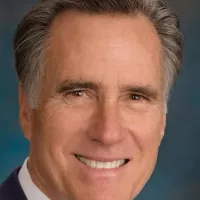Hofstra University, located in Hempstead, New York, is a private research university established in 1935. Originally an extension of NYU, it became independent in 1939. The university consists of ten schools, including the Zucker School of Medicine and the Maurice A. Deane School of Law. Hofstra is notable for hosting presidential conferences and United States presidential debates.
1932: Death of William S. Hofstra
In 1932, William S. Hofstra, the namesake of Hofstra University, passed away. He was a lumber entrepreneur of Dutch ancestry.
1933: Death of Kate Mason
In 1933, Kate Mason, the wife of William S. Hofstra, passed away. She left the bulk of their property and estate to be used for a charitable, scientific or humanitarian purpose in honor of her husband.
1934: Estate Offered for Sanitarium
In the spring of 1934, the estate of William S. Hofstra and Kate Mason was offered to the Georgia Warm Springs Foundation to be converted into a sanitarium for polio patients, but the offer did not materialize.
September 23, 1935: First Day of Classes
On September 23, 1935, Nassau-Hofstra Memorial College held its first day of classes, with 150 students enrolled, equally divided between men and women.
1935: Flying Dutchmen Nickname
From 1935, Hofstra University teams were nicknamed the Flying Dutchmen.
1935: Hofstra University Origins
In 1935, Hofstra University originated as an extension of New York University in Hempstead, New York.
1935: Establishment of The Hofstra Chronicle
In 1935, The Hofstra Chronicle, the only student newspaper at Hofstra University, was established.
1935: College Foundation on Hofstra Estate
In 1935, the college was founded on the estate of William S. Hofstra and Kate Mason as an extension of New York University, named Nassau College – Hofstra Memorial of New York University.
January 16, 1937: Name Change to Hofstra College
On January 16, 1937, the college's official name was changed to Hofstra College, obtaining provisional charter status.
1937: Original Logo Created
In 1937, Professor Constant van de Wall created Hofstra's original logo, derived from the House of Orange-Nassau's seal, and included the Dutch motto "Je Maintiendrai".
July 1, 1939: Separation from New York University
On July 1, 1939, Hofstra College separated from New York University.
1939: Hofstra Becomes an Independent College
In 1939, Hofstra became an independent college after starting as an extension of New York University.
1939: Dutch Flag Influences School Colors
In 1939, the Dutch ambassador to the United States left behind a flag of the Netherlands, influencing Hofstra's school colors, university seal, and coat of arms.
February 16, 1940: Absolute Charter Granted
On February 16, 1940, Hofstra College was granted an absolute charter.
1950: Founding of WHCH
In 1950, WHCH, a campus-limited radio station, was founded at Hofstra University.
1950: First Shakespeare Festival
In 1950, the first Shakespeare Festival was held at Calkins Gymnasium, performed on a five-sixths-sized replica of the Globe Theatre.
June 9, 1959: WVHC Receives Broadcast License
On June 9, 1959, WVHC, Hofstra's radio station, received its broadcast license.
1968: Donation of Aeolian Pipe Organ
In 1968, a three-bank Aeolian pipe organ was donated to Hofstra by John T. Ricks and Jane Ricks King, in memory of their parents, Mr. and Mrs. Jesse Ricks. The organ was planned for installation in the Hofstra Playhouse.
1971: First NCAA Lacrosse Championship Game
In 1971, Hofstra Stadium hosted the first-ever NCAA Division I Men's Lacrosse Championship game.
1976: Nick Gallo Joins U.S. Olympic Wrestling Team
In 1976, Nick Gallo became a member of the U.S. Olympic Freestyle Wrestling team.
1977: Nick Gallo Wins NCAA Championship
In 1977 Hofstra wrestler Nick Gallo won the 126 lb weight class at the NCAA National Championship and was named "Most Outstanding Wrestler" in the NCAA Division I Wrestling Championships.
1980: Nick Gallo Joins U.S. Olympic Wrestling Team
In 1980, Nick Gallo became a member of the U.S. Olympic Freestyle Wrestling team.
1983: Call Letters Change to WRHU
In 1983, the call letters of Hofstra's radio station changed from WVHC to WRHU (Radio Hofstra University).
1985: Hofstra University Tulip
In 1985, the commissioner to the Queen of the Netherlands presented Hofstra University with the Hofstra University Tulip, a flower hybrid named after the school, now a focal point of the annual Dutch Festival.
1987: "Hofstra Pride" Image Campaign
In 1987, the "Hofstra Pride" image campaign began, coinciding with the university's recovery and growth after a financial crisis in the 1970s.
2001: End of Flying Dutchmen Nickname
In 2001, Hofstra's athletic teams ceased being known as the Flying Dutchmen.
2001: The Pride Nickname
In 2001, Hofstra's official team name became "The Pride", referring to the lion mascots.
2008: Jets Leave Hofstra for Training Camp
Prior to 2008, the New York Jets held their summer training camp at Hofstra's on-campus headquarters. They later moved to Florham Park, New Jersey.
September 2009: Appointment of Presidential Fellows
In September 2009, Stuart Rabinowitz announced the appointment of Edward J. Rollins and Howard Dean as senior presidential fellows at Hofstra's Peter S. Kalikow Center for the Study of the American Presidency.
December 3, 2009: Termination of Football Program
On December 3, 2009, Hofstra University announced that it was terminating the football program.
2010: WRHU Broadcasts NHL
Since 2010, WRHU has served as the radio home of the Long Island Nets and New York Islanders, producing over 675 NHL broadcasts.
February 2011: Charles Jenkins Leading Scorer
In February 2011, Charles Jenkins was the school's all-time leading scorer and ranked fifth in the nation at 23.3 points per game.
February 26, 2011: Retirement of Charles Jenkins' Jersey
On February 26, 2011, Hofstra University retired the basketball jersey number 22 to honor Charles Jenkins, the school's all-time leading scorer, before the end of the season. This was a unique honor, as no other athlete had their number retired while still playing.
October 2011: Hofstra Chosen for 2012 Presidential Debate
In October 2011, the Commission on Presidential Debates announced that Hofstra was chosen to host the second 2012 presidential debate.
2011: First Class at Hofstra Northwell School of Medicine
In 2011, Hofstra University welcomed its first class of students to the new Hofstra Northwell School of Medicine.
October 16, 2012: Hofstra Hosts 2012 Presidential Debate
On October 16, 2012, Hofstra University hosted the "town hall" debate between Barack Obama and Mitt Romney.
2012: Establishment of New Schools
In 2012, Hofstra established its school of engineering and applied science and its school of health sciences and human services.
2015: Medical School Building Completed
In 2015, the medical school building was completed on the area previously used for the New York Jets' training camp.
September 26, 2016: Hofstra Hosts 2016 Presidential Debate
On September 26, 2016, Hofstra University hosted the first 2016 presidential debate between Donald Trump and Hillary Clinton.
August 2017: Zucker School of Medicine Renaming
In August 2017, the Hofstra Northwell School of Medicine was renamed the Donald and Barbara Zucker School of Medicine at Hofstra/Northwell after a $61 million donation.
2020: Rankings by U.S. News & World Report
In 2020, U.S. News & World Report ranked Hofstra tied for 160th among national universities and 92nd 'best value school', with its undergraduate engineering program ranked tied for 33rd among schools where doctorates are not offered.
2023: Admissions Statistics for Entering Cohort
For the cohort entering in 2023, Hofstra maintained a test-optional policy, with 35% of enrollees submitting test scores, and admitted 62% of applicants with enrolled students having an average 3.7 GPA.
Mentioned in this timeline

Basketball is a team sport played on a rectangular court...

Donald John Trump is an American politician media personality and...

Barack Obama the th U S President - was the...

Hillary Diane Rodham Clinton is a prominent American politician lawyer...
The United States of America is a federal republic located...

Mitt Romney is an American businessman and former politician He...
Trending

7 minutes ago Eileen Gu Dominates Halfpipe, Secures Gold and Sixth Olympic Medal in Career.
7 minutes ago Yamamoto Shines Before Classic, Ready for Dodgers; Eyes 2026 Dominance
7 minutes ago US-Mexico Military Cooperation: Bipartisan Effort Saves Exercise, Navy SEALs Train, Cartels Targeted.

8 minutes ago Paul Mescal and Gracie Abrams Make Red Carpet Debut at the BAFTAs 2026

2 hours ago Priyanka Chopra stuns in Dior and Gaurav Gupta at 'The Bluff' premiere.
2 hours ago Puerto Vallarta: Vehicle Fires and Roadblocks Disrupt Sunday Morning
Popular

Jesse Jackson is an American civil rights activist politician and...

Barack Obama the th U S President - was the...

Bernie Sanders is a prominent American politician currently serving as...

Ken Paxton is an American politician and lawyer serving as...

Michael Joseph Jackson the King of Pop was a highly...
WWE Raw a professional wrestling television program by WWE airs...